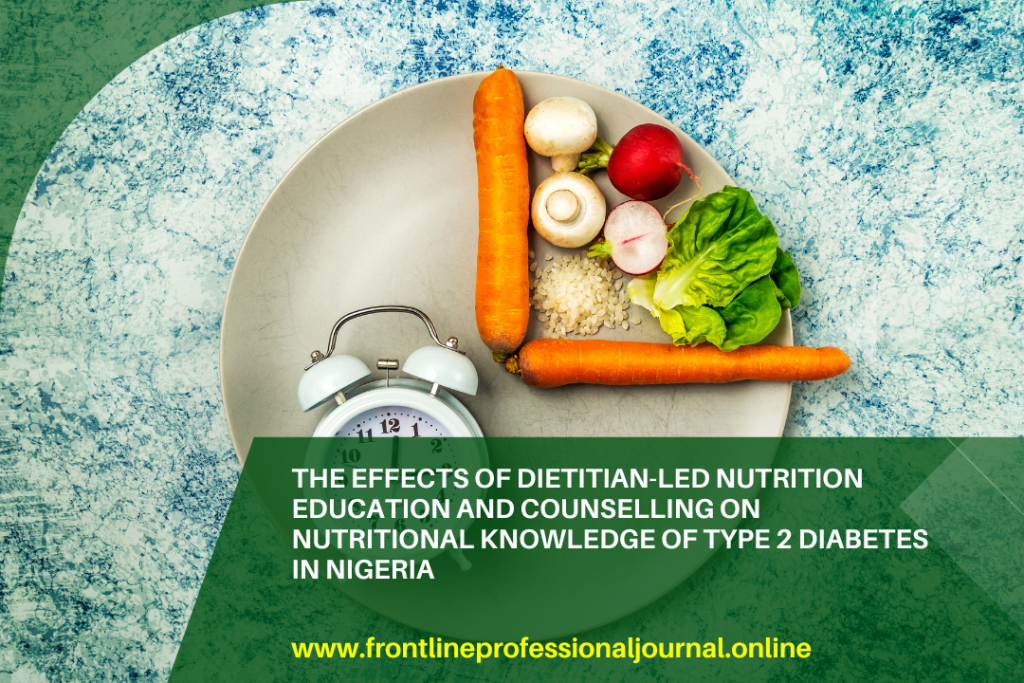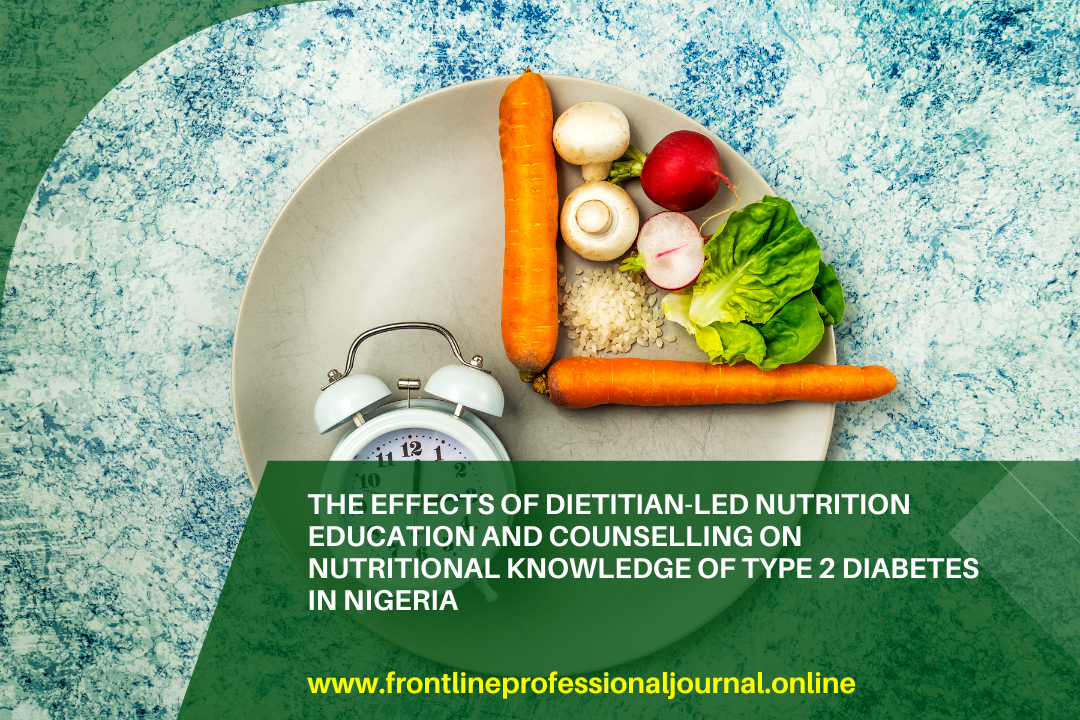
Author: Collins, P. l.
CITATION: Collins, P. l. (2025). The effects of dietitian-led nutrition education and counseling on nutritional knowledge of type 2 diabetes in Nigeria. Frontline Professionals Journal 2(10), 177-195
ABSTRACT
Type 2 diabetes is not evenly spread across various geographical areas in Nigeria with the south-south region recording the highest prevalence. The diet has been shown to be properly managed to prevent complications and enhance the outcomes. The study assess the effects of dietitian-led nutrition education and counseling on nutritional knowledge of diabetes in pre and post intervention among adult type 2 diabetes in Nigeria. It is a quasi-experimental study that is located in a hospital. A total of seventy-nine subjects from each group were randomly selected to be included in the intervention and control group in a ratio of 1:1. The baseline data was thus gathered at the beginning of the study. The intervention group members were given 3 months of nutrition education lessons every week. The last aspect of the study was data collection. In the control group, the mean knowledge score was 47.08±12.94 at baseline and 47.19±12.85 at end line level. Fifty-seven percent had poor knowledge at baseline and at end line in the control group. The baseline level of knowledge was 50.71±15.5 in the intervention group, 48% of the respondents were poor with respect to their knowledge at the baseline level and 71% were good with respect to their knowledge at the end line level. The end line knowledge score was 74.6±11.24. The intervention had a significant and moderate positive effect on food choice and knowledge (r=0.471, p=0.000). The paper has demonstrated that dietary intervention by a dietitian can significantly change the compliance to healthy eating behavior by patients by effective increase the level of fiber intake and decrease calorie intake which was effective in glycemic targets. The government should employ dietitians in all the health care centers so that they can provide integrate programs that will incorporate nutrition education in the existing health system service. This intervention will probably lead to significant glycemic control of patients with T2DM provided it is done regularly in every hospital in Nigeria.








